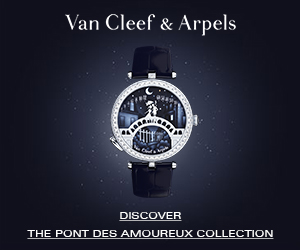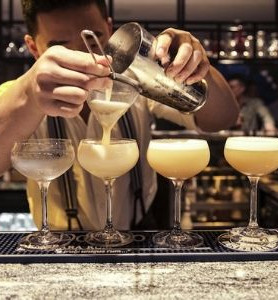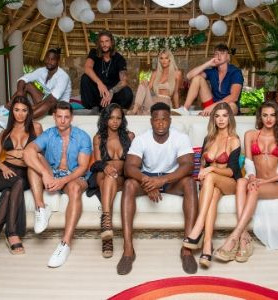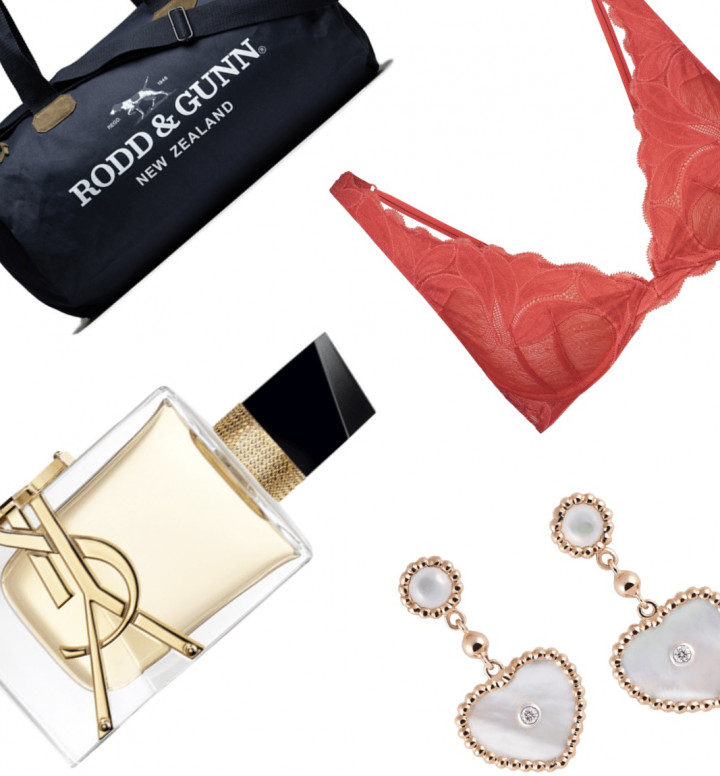Lifestyle Awards 2021: Meet your Emerging Designer finalists
It’s never been more pertinent to highlight and support local, up-and-coming designers than right now. Despite 2020’s challenges, one silver lining was the explosion of emerging talent, particularly in fashion. So, we asked you, our readers, for the new wave of designers making their mark in New Zealand. Six local fashion creatives came out on top, securing a finalist nomination for the Emerging Designer category in the Remix Lifestyle Awards. These are the ones to watch that you’ll want to add to your radar for 2021.
We chatted to the brains behind these fresh, local labels...
Jessie Wong
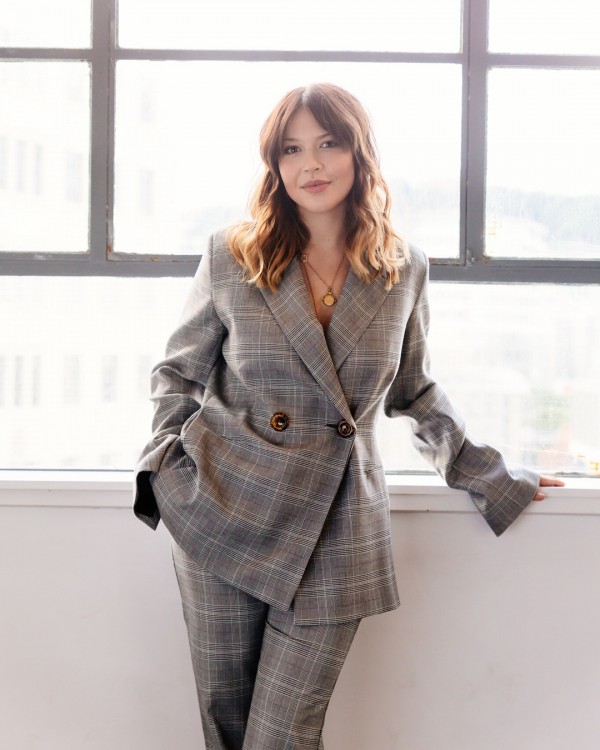
Founder of leather goods label, Yu Mei.
What inspired you to get into fashion?
I’ve always been creative and enjoyed the design process, but I really got into the industry because I couldn’t find a bag to carry everything I needed in a day - so I approached it as a problem to solve, rather than simply wanting to ‘work in fashion.’
After a school careers evening, my mum, probably half-jokingly, encouraged me by saying “Just like being a successful musician, there’s a one-in-a-million chance of being successful in the fashion industry, but I don’t see why you can’t be that one in a million.” I decided then and there that I wanted to be a fashion designer and own my own brand.
What skills and qualities do you think are needed to succeed in the industry?
Tenacity, determination, and a thick skin. The ability to advocate strongly for yourself and your brand. A growth mindset and the desire to always push yourself further. A good support network.
Who is your biggest mentor and why?
Sarah Wickens is my official ‘business mentor’ but I admire her so much more than that title encapsulates. She started a global skincare business with her sister and achieved incredible success, but she’s also a generous philanthropist. I love to see her passion and drive to help others, and her powers of persuasion are nothing short of impressive. She gives sound advice and is always so supportive. She asks the hard questions and encourages me to relentlessly think bigger.
How would you describe your personal style?
Utilitarian and functional, very much like the bags I design. I like to invest in quality fabrics and timeless pieces that will last a long time. My daily go-to is a pair of wide leg trousers, a cashmere tee and my favourite blazer from The Row, plus a Yu Mei bag - currently I have the Sonja Tote on rotation with my smaller Suki Clutch.
What’s your approach to sustainability in today’s climate?
I used to be allergic to the word ‘sustainable’ because I was hyper aware of greenwashing. For a long time, businesses were peddling the narrative that it’s up to the consumer to make sustainable choices, but I feel it’s on businesses to do best by people and the planet. I feel this responsibility personally - on behalf of my team, business and every product we put out. We launched our circularity programme, the Buyback Initiative, almost two years ago and we’re currently in the process of becoming a B Corp and working through our carbon footprint reduction with CarboNZero. Certifications aside, our approach to sustainability is entrenched in everything we do, from the respect for the deer nappa we use, this carries through to our emphasis on care and repair. In the next 10 years, we hope to have a fully regenerative supply chain.
What advice do you have for budding creatives wanting to get into the fashion industry?
In the six years since I started Yu Mei, I’ve enjoyed the creative aspects of design, but along the way found a new passion for strategizing and building a business. It’s been hard work - I sewed the first 500 bags myself, staying up for three days and four nights until my fingers bled - but so rewarding. There’s a lot more to ‘fashion’ than just aesthetics, so if anyone ever minimises your desire to get into the industry, remember that you could be that next one in a million if you put your mind to it and work hard.
Caitlin Crisp
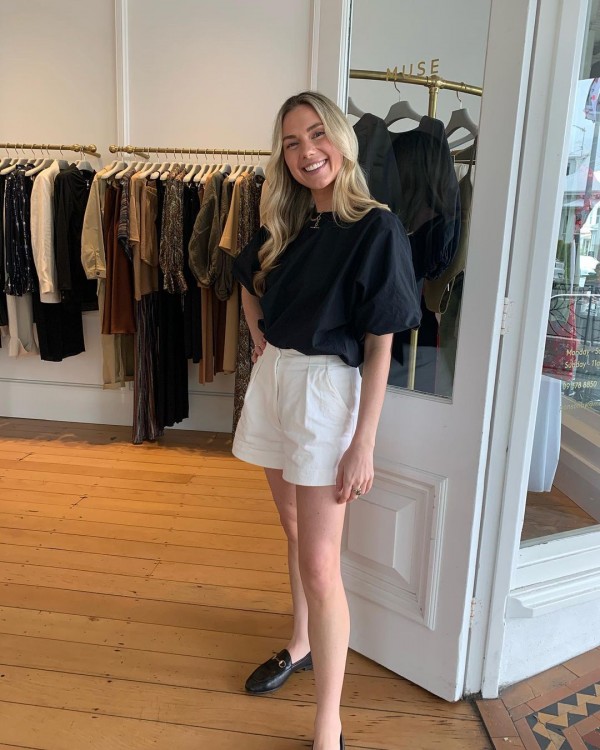
Founder of her namesake label, Caitlin Crisp.
What inspired you to get into fashion?
I was dressing and styling myself before I could even talk properly! It's always been something I've had an interest in. My eye for design teamed with my love of sewing was a match made in heaven to start the label.
What skills and qualities do you think are needed to succeed in the industry?
You need to be a problem solver, things are constantly changing and going wrong so you need to be optimistic and adaptable! As with most things in life, kindness goes a long way too.
Who is your biggest mentor and why?
My gorgeous mother! I'm on the phone to her bouncing ideas back and forth every morning. She is an incredibly successful business owner and as a mother she also has my health and well-being in mind so keeps me balanced between personal life and work.. She always knows when to tell me to grab a wine or to stay at the studio and keep working!
How would you describe your personal style?
Easy to wear and comfortable.. yet stylish! I'm a busy girl and always go to wear the things that I'm comfortable and confident in. I'm always designing my dream 'everyday' wardrobe and then get to put that into production for others to enjoy!
What’s your approach to sustainability in today’s climate?
I am very conscious of who my customer is and what their budget is. Being made in NZ comes at a much higher cost than making offshore but it's something very important to me. I know that constantly purchasing ethically sourced and made goods isn't sustainable for a lot of people which is why I aim to bring NZ made goods to the market at a more accessible price point. I think people are definitely more conscious about the traceability of the garments they're buying which is great, now that we're growing a bit bigger I am able to work directly with a few offshore mills to create my own fabrics in more sustainable fibres such as organic cottons which are then shipped here, cut and made up in NZ! So budget and traceability are key for me.
What advice do you have for budding creatives wanting to get into the fashion industry?
I was young and naive when I started on this journey but I was also eager to learn and had an incredible work ethic. You need to truly love it and have friends and family backing you 100% to get you through the tough times. Start small, be kind and ask a lot of questions!
Bobby Luke
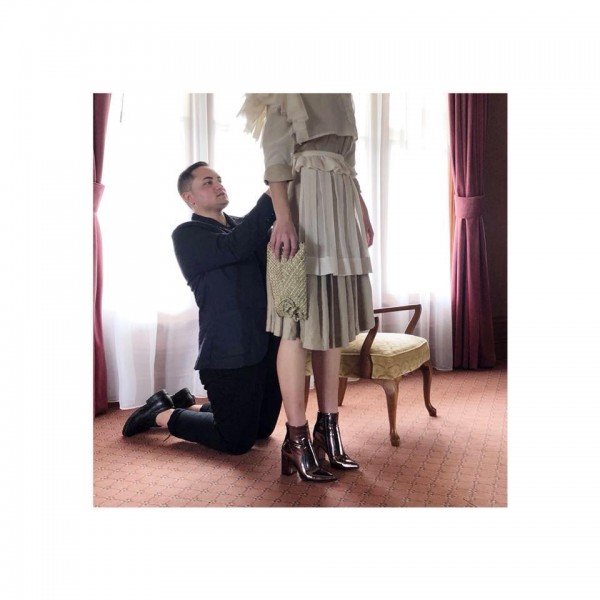
Founder of Campbell Luke, a contemporary clothing label with a strong Māori ethos.
Ko Wai au? Who am I
Ko Taranaki te Mounga
Ko Aotea te Waka
Ko Tangahoe Te Rorohenga
Ko Ngāti Ruanui Toku iwi
Ko Hamua, Hapotiki Toku Hapu
Ko Taiparohenui Toku Marae
Ko Bobby Campbell Wahawaha Luke
What inspired you to get into fashion?
As a kid, my creative tendencies started when drawing blueprints of my Marae (Maori village), drawing two-point perspective technical drawings, designing different buildings I dreamed of designing a modern day marae, coming from a family of builders it seemed natural for me to go into this space, yet finding out that maths want exactly my forte. I turned to visual arts, painting, drawing, sculpture, photography and installation excelling in all fields. This space for me growing up was a safety net. Fashion fell into my lap and I took the chance at it, my favourite part of Fashion was contextualising the concepts of other designers thoughts and processes. All of these creative references built a library of influences, particularly my lived experience growing up on the marae and in an urban environment.
What skills and qualities do you think are needed to succeed in the industry?
- Whakawhanaungatanga
- Mohiotanga
- Kotahitanga
As a Māori my set of skills and qualities are based on a set of values and lived experiences. I believe these are fundamental principles that are spread across all facets in any industry, as they become the foundation to which you build your skills upon. Whakawhanaungatanga, is the sense of belonging, essentially getting to know people in the industry, finding your tribe is essential as they become your network of support. Mohiotanga, sharing of information, the Fashion industry tends to be locked up, but I think with reciprocal interactions it can forge meaningful relationships between one another. Kotahitanga, encouraging unity, collectively coming together as one, as the fashion industry is a competitive space there is no room for a united front, but having this value stipulates the potential of working together rather than against. I could name more but these are some fundamental values that I consider as qualities and skills that are needed [More] in the industry
Who is your biggest mentor and why?
My mum Alison, she is the catalyst of tupuna (ancestral) wisdom, her mentorship as a mother has benefited me in ways to understand people, place and culture. And to never forget who I am and where I come from, to be always grounded and keeping my feet on the ground. Nga Mahaki, to be humble.
How would you describe your personal style?
I sometimes catch myself in the mirror when I am working, thinking to myself, ‘ are you really a Fashion designer?’ 90% of the time I’m in a jumper and comfy pants sitting at my sewing machine or computer working from home. I can’t describe my style, but I think I could describe it as easy oversized comfort. If I had to dress up for something, it would be something black.
What’s your approach to sustainability in today’s climate?
I think sustainability has become the ‘buzzword’ recently and it becomes more evident that the term is used as a form of lip service, actions speak louder than words, as an industry we are all aware and we should be taking those steps naturally as a part of everyday practice. My particular response to this is I use fabric from linen articles and homewares such as sheets and duvet covers, when purchasing fabric I only buy deadstock fabric and as a made to order business I only use what I need until the roll is finished.
What advice do you have for budding creatives wanting to get into the fashion industry?
Find your community, thrive in that space and be unapologetically yourself, exercise your cultural agency and your Identity. Be authentic, authenticity is rare in this industry, understand who you are and where you come from, because these are the most valuable human values and lastly, never compare yourself to others, you are unique and you are authentic.
Jodie Calder
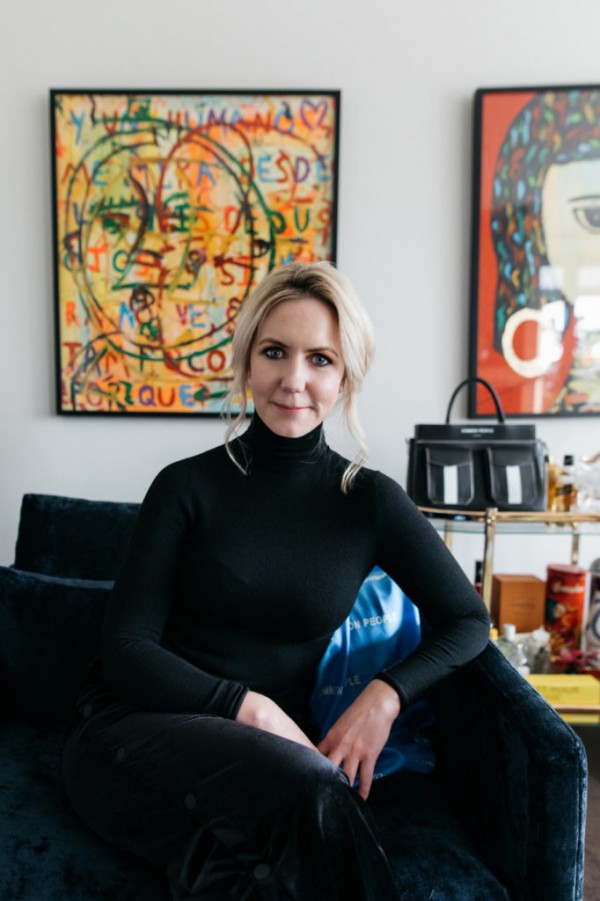
Founder of Wanaka based bag and accessory label, Common People.
What inspired you to get into fashion?
I was obsessed with bags and accessories from a young age so I guess that and being born creative and curious has naturally led me down this path.
What skills and qualities do you think are needed to succeed in the industry?
Creativity, an eye for detail, strong visualisation and problem solving skills, and business sense. Above all I think it’s essential to have passion and purpose - to know why you’re doing it and having the passion to drive you will enable you to overcome challenges and persevere to get where you want to be.
Who is your biggest mentor and why?
My parents. My Dad was an Engineer and a true visionary, he was a creative problem solver and brilliant businessman with a confident can-do attitude who taught me the importance of patience, perseverance and attention to detail. His voice remains the constant whenever I come to face new challenges. My Mum's strength, determination and business sense continues to inspire me daily.
How would you describe your personal style?
I’m quite eclectic so it can vary greatly. Generally it’ll be more street than sequins.
What’s your approach to sustainability in today’s climate?
Knowledge, transparency and consciousness - knowing your materials and where they come from, and the intimate details and assessment of processes from design and production to delivery with a consciousness of people and the planet at each decision making step. Designing for minimal materials wastage, using sustainable quality materials, recycling of materials and only producing small quantities eliminates any unnecessary wastage. We only use factories that use ethical labour practices, including fair wages and safe working conditions. Our packaging is recyclable or compostable and we have a ‘good-cycle’ scheme where customers can bring their old handbag (any old bag) in store and receive $30 off a new bag - the bags are then donated to local hospices to on-sell and use the profits to help the community.
What advice do you have for budding creatives wanting to get into the fashion industry?
Believe in yourself, take risks, make mistakes, learn from them and trust your gut.
Natalie Procter
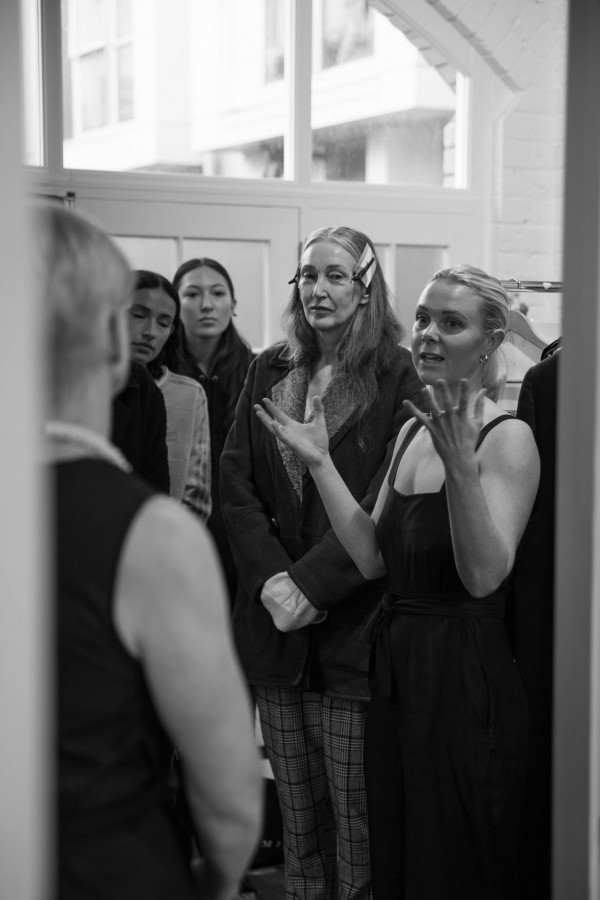
Founder of Mina, an ageless and refined local label.
What inspired you to get into fashion?
As a kid I used to spend my weekends making clothes or jewellery, scrapbooking, tree house building and all sorts. I loved using my hands and creating things. It wasn’t till I went to school that I fell in love with the art block where I spent all my lunch times in the sewing classroom or the photography lab. I have a love for both but I had more of a calling for fashion as I moved into University where I studied a fashion degree in Wellington. My focus is on well made products and fabrications, I don’t like to get caught up in the rest of the fluff around the ‘fashion’ industry, so Wellington was the perfect city to find myself as a designer.
What skills and qualities do you think are needed to succeed in the industry?
Kindness and respect gets you a long way in this industry I believe. That’s really big for us at Mina. As a designer/ business owner, the ability to ‘wear all the hats’ is a huge skill to have. When you're a young business you're not just the designer, you're also the sales girl, the marketing and comms person, ecommerce/dispatch/customer service/accounts etc etc. The ability to compartmentalize all these roles in your brain and give them the attention they need is huge. And when the day comes that you can give off these roles and bring people into your team, the respect and value of their role is instantly there.
Who is your biggest mentor and why?
My Dad. We can talk through any business struggle together and he always knows the right thing to say. He’s a great sounding board for me especially when it comes to making big decisions.
How would you describe your personal style?
My personal style is Mina - I design for myself and also my older self. I am a reasonably modest dresser so designing for the ‘ageless’ is not hard for me. I like a feminine silhouette although I like to dress with absolute ease. So clean muted silhouettes in soft and comfortable fabrics is me.
What’s your approach to sustainability in today’s climate?
Buy less, but buy well and view your clothes as investment pieces. Last week we launched the beginning of our new design model ‘One’. One promotes transeasonal designing as opposed to seasonal buying where clothes spend too much time in the wardrobe or stored away until next season. Transeasonal buying is building a core wardrobe of pieces that can be layered with on cooler days and worn separately in summer. Natural fabrics play a huge role in this way of buying also as they allow your body to breathe whilst cooling you down or keeping you warm.
What advice do you have for budding creatives wanting to get into the fashion industry?
Find your purpose. What do you want to do for this industry, make sure those values align with the business you choose to work for or for the business you want to start.
Benjamin Alexander
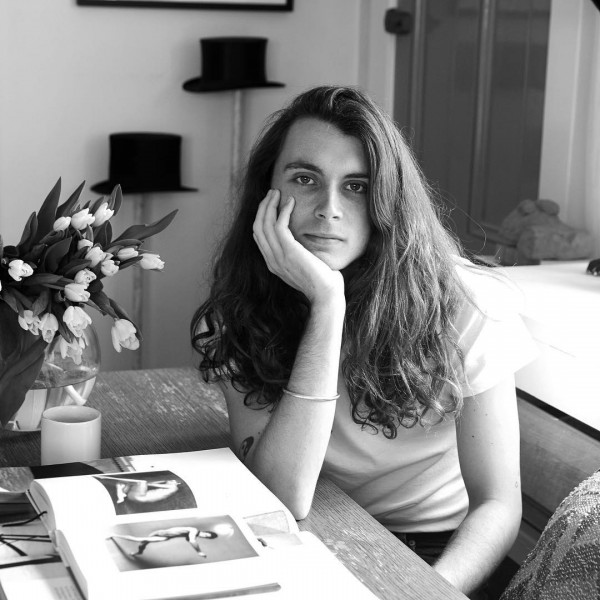
Founder of local apparel and accessory label, Benjamin Alexander.
What inspired you to get into fashion?
I wouldn’t say I was inspired by anything in particular, it has been more of an innate desire throughout my life. Growing up I was always fascinated by my mother’s clothes and would sneak into her wardrobe to try everything on, so I guess it is the industry I was born to be in.
What skills and qualities do you think are needed to succeed in the industry?
It’s definitely a demanding industry in the sense that it asks everything of you. You need to be extremely determined and be willing to go above and beyond any expectations (including your own), have a good sense of yourself and what you have to say, and understand that although fashion is aspirational and creative, above all it’s a business.
Who is your biggest mentor and why?
Belinda Watt, Sally-Ann Mullin, and Amanda Neale. These three incredible women have been a constant backbone of support and I wouldn’t be where I am today, nor the person I am today, without them.
How would you describe your personal style?
I would say my style is quite classic, with jewellery being the more interesting aspect of how I dress. I’m probably most comfortable in a good pair of blue jeans, a crisp white tee and shirt, a good pair of loafers and some diamonds.
What’s your approach to sustainability in today’s climate?
I have a responsibility being the owner of a business and as an individual to exhibit transparency across all sectors and provide evidence of how Benjamin Alexander's clothing is made. I am aware of the huge impact that unsustainable and unethical clothing has on the planet and the people that live on it. I strive to commit to create clothing that doesn't compromise the ability of the environment or people to be valued within themselves and their community.
All of our products are proudly made in New Zealand. By working with local manufactures we are investing in an industry that is our home. We want to build strong, personal relationships with everyone involved in the production process to reinforce the value of our clothing and what it means to be New Zealand made.
What advice do you have for budding creatives wanting to get into the fashion industry?
Work hard, meet as many people as you can and foster those relationships, be wholeheartedly yourself and be prepared to give it everything you have.
Vote for your favourite designers in the Remix Lifestyle Awards here.


